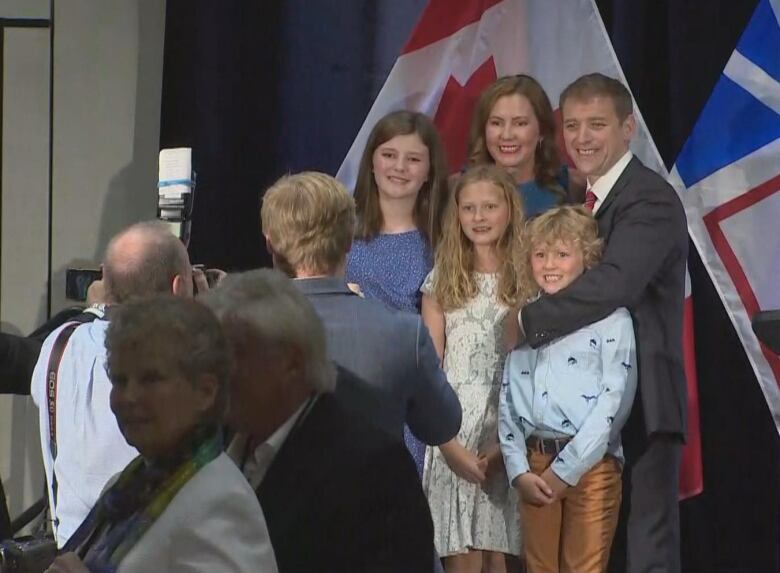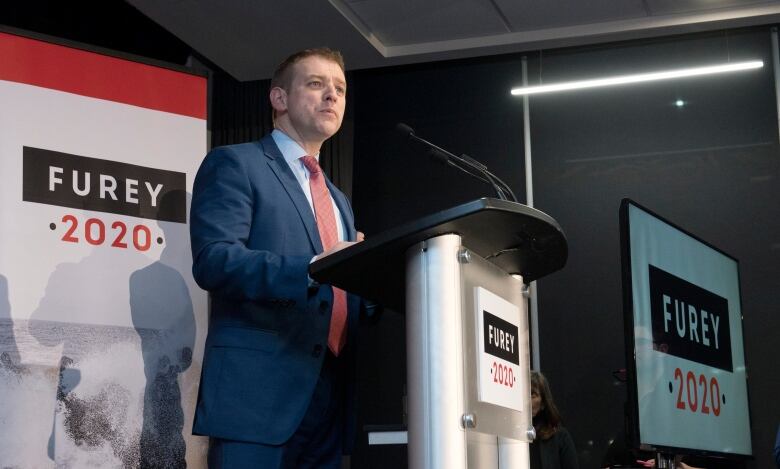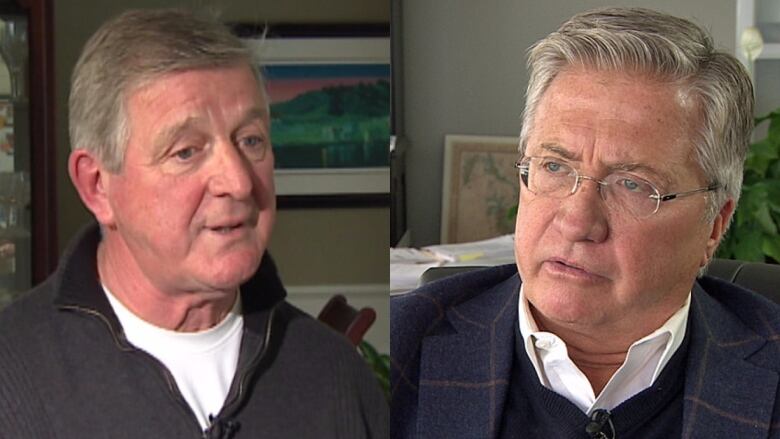We should have an election soon in normal circumstances. We don't have those right now
The timing of the next election will likely be influenced by COVID-19, and of course Liberal strategy

When Andrew Furey is sworn in Wednesday as Newfoundland and Labrador's 14th premier, a great metaphorical clock will start ticking.
The clock, of course, will be ticking toward a general election, which will need to be called within the next 12 months. That means a full-on campaign will be upon us soon.
Well, not very soon. Furey has made it abundantly clear he does not want to go to the polls right away. More pressing objectives will be organizing his own staff, getting his new cabinet (we'll see that on Wednesday also) rolling with new mandates, and finding a way inside the House of Assembly.
Unelected until now, Furey may find a path through Newfoundland's west coast. In an exit interview with CBC, Premier Dwight Ball said he is considering retiring altogether from politics, to vacate his seat of Humber-Gros Morne as an opportunity for his successor. (Political trivia alert: If this scenario plays out, Furey will be representing many of the Northern Peninsula communities that his uncle, former Liberal cabinet minister Chuck Furey, represented for 15 years in the now-defunct district of St. Barbe.)
In an ideal situation that is, detached from current events and problems an election ought to be called as soon as possible. Furey, after all, will be governing without a direct mandate. The Liberals won re-election in May 2019, but with a minority standing, and Furey was obviously not a factor with voters headed to the polls.
But we are not in an ideal situation. We're still very much in the midst of a global pandemic. While we've arguably become accustomed in Newfoundland and Labrador to a planked curve of infection (we have had single-digit active caseloads for three months, and that number has often been zero), COVID-19 is far from under control around the world. The disease is still a formidable threat.
That factor alone seems reason enough to be prudent, and to not have a campaign when we're still trying to figure out how to have as normal lives and working environments as possible. Why hasten something that, by law, does not necessarily have to be hasty?
About that law of ours
Ah, yes. That law.
Newfoundland and Labrador moved to fixed-date legislation under the former Tory government of Danny Williams; an election is meant to be held every four years, in October. We're far from alone; most provinces and territories have moved to that model.
But we're evidently unique in one respect: we also have another law, one that effectively forces a new premier who replaces a resigning one to call an election.

The law, though, doesn't say that an election has to be held within 12 months. It says that an election has to be called within 12 months.
Here's exactly how this is worded in the House of Assembly Act:
3.1 Where the leader of the political party that forms the government resigns his or her position as leader and as Premier of the province before the end of the third year following the most recent general election, the person who is elected by the party to replace him or her as the leader of the party and who is sworn in as the Premier of the province by the Lieutenant-Governor shall, not later than 12 months afterward, provide advice to the Lieutenant-Governor that the House of Assembly be dissolved and a general election be held.
In other words, Furey will have until mid-August 2021 to call an election, which with a four-week campaign would have ballots being cast in mid-September.
That timing is significant. Summer is generally considered a rotten time for an election, although it has happened; the 1959 election was held in August, while the 1979 election happened in June. (We've never tried one in July.)
The timing of the election must no doubt be on Furey's mind. As time goes on, he will also no doubt come under fire for not having a mandate from the Opposition benches.
Revisiting the Williams-Grimes era
This scenario may ring a few political bells.
Roger Grimes became Liberal leader (and thus premier) in February 2001. Two months later, Danny Williams became leader of the Progressive Conservatives, and thus the Opposition leader.
You may remember Williams's frequent barbs that Grimes was running the government without a mandate. After all, voters had last gone to the polls in 1999, to give Brian Tobin a second term, only to see Tobin renege on a promise to serve a full term and hop back into federal politics. Beaton Tulk became premier in the interim, making Grimes the third Liberal to run the province on the same electoral mandate.

It chafed Williams a great deal. In power, the Tories did something about it after they reclaimed power.
A change to the House of Assembly Act became law in December 2004, putting in place the obligations that are now very much part of political decision-making.
Which raises a question: if the House of Assembly voted to put this law in place, could it not vote to take it down? Sure, but that would likely be a difficult thing to sell to the electorate.
Andrew Furey, of course, will have his own agenda, and his own strategy for how the pin will be pulled.
Then again, we have no idea how the rest of the COVID-19 pandemic will play out. Who's to say what the epidemiological and political landscapes will be like a year from now?













_(720p).jpg)


 OFFICIAL HD MUSIC VIDEO.jpg)
.jpg)



























































































